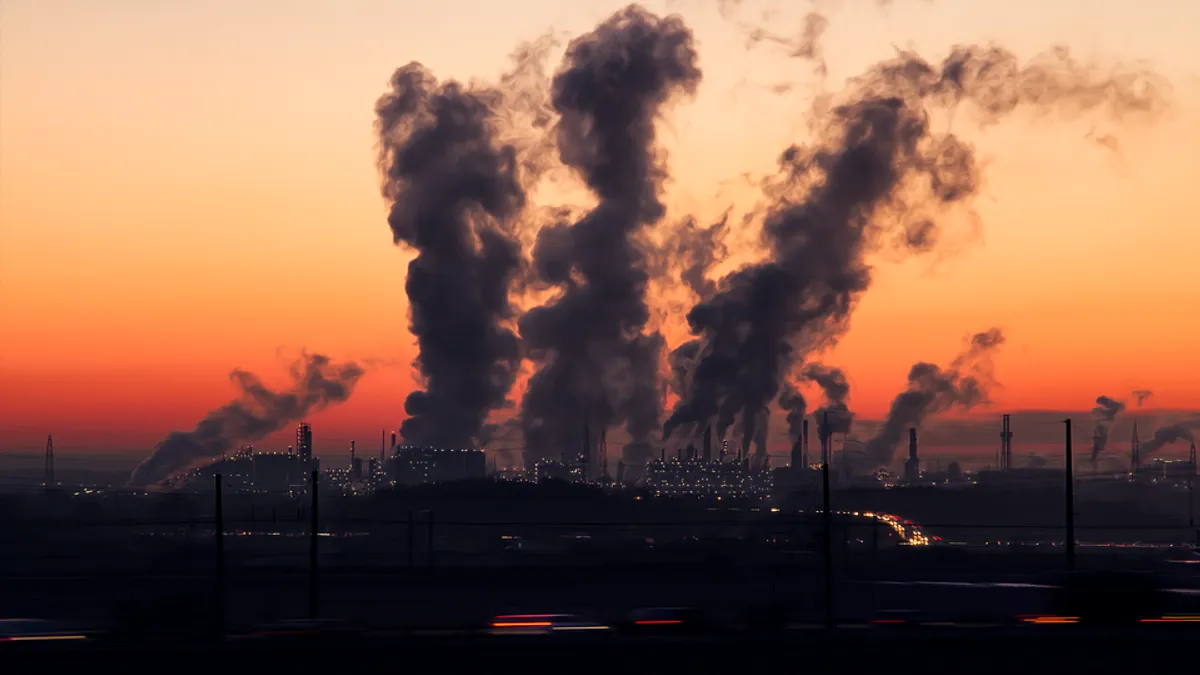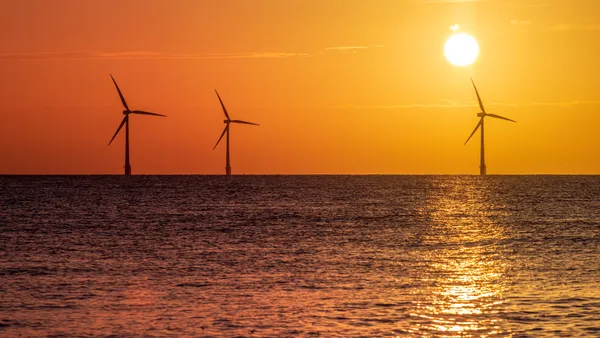Dive Brief:
- According to a survey conducted by the U.S. Conference of Mayors (USCM) and Center for Climate and Energy Solutions (C2ES), 57% of participating cities are planning some sort of climate action in the coming year, and 60% have launched or expanded a climate policy in the last 12 months.
- Of the 158 responding cities in 39 states, 95% said they had experienced an impact of climate change, from drought to wildfires to extreme storms.
- The survey showed that cities are investing heavily in renewable energy, as 65% said they use low-carbon sources for municipal operations. Eight cover 100% of their needs with renewable power, and 27 cover 30% or more of their needs with renewable power.
Dive Insight:
With the Trump administration rolling back several climate measures — including withdrawing from the Paris climate accord — cities and states have been stepping up and making climate commitments of their own. USCM president and Columbia, SC Mayor Steve Benjamin said in a statement that “cities of all sizes know that climate change is real. And therefore, we are taking action.”
“Would it be easier if the Federal government and Congress were our partner? Yes,” he added. “But in their absence, we will not abandon our responsibility to lead and preserve this earth for future generations.”
City-level action has taken the form of green vehicle purchasing (according to the USCM survey, 60% of cities have clean vehicle programs), energy efficiency for buildings (70% of cities have set policies for new and existing buildings) and adoption of alternative transportation options (22% of respondents are exploring bike-sharing). Renewable energy purchasing remains a dominant strategy, especially since cities often have greater control over their utility contracts. Mayors, led by Boston’s Marty Walsh, are also exploring banding together for a massive renewable energy purchase to help drive down costs in the industry.
Through the “We Are Still In” coalition and the "We Are Taking Action" collective, more than 200 mayors have vowed to take climate action and hold up the U.S. commitment to the Paris agreement. A climate conference co-hosted by California Gov. Jerry Brown, ongoing this week in San Francisco, is expected to be the venue for more announcements. Despite progress, The New York Times points out that cities and states have limited control over fields like transportation, which accounts for the largest share of the country’s greenhouse gas emissions, and that action has been limited largely to blue states and cities.














